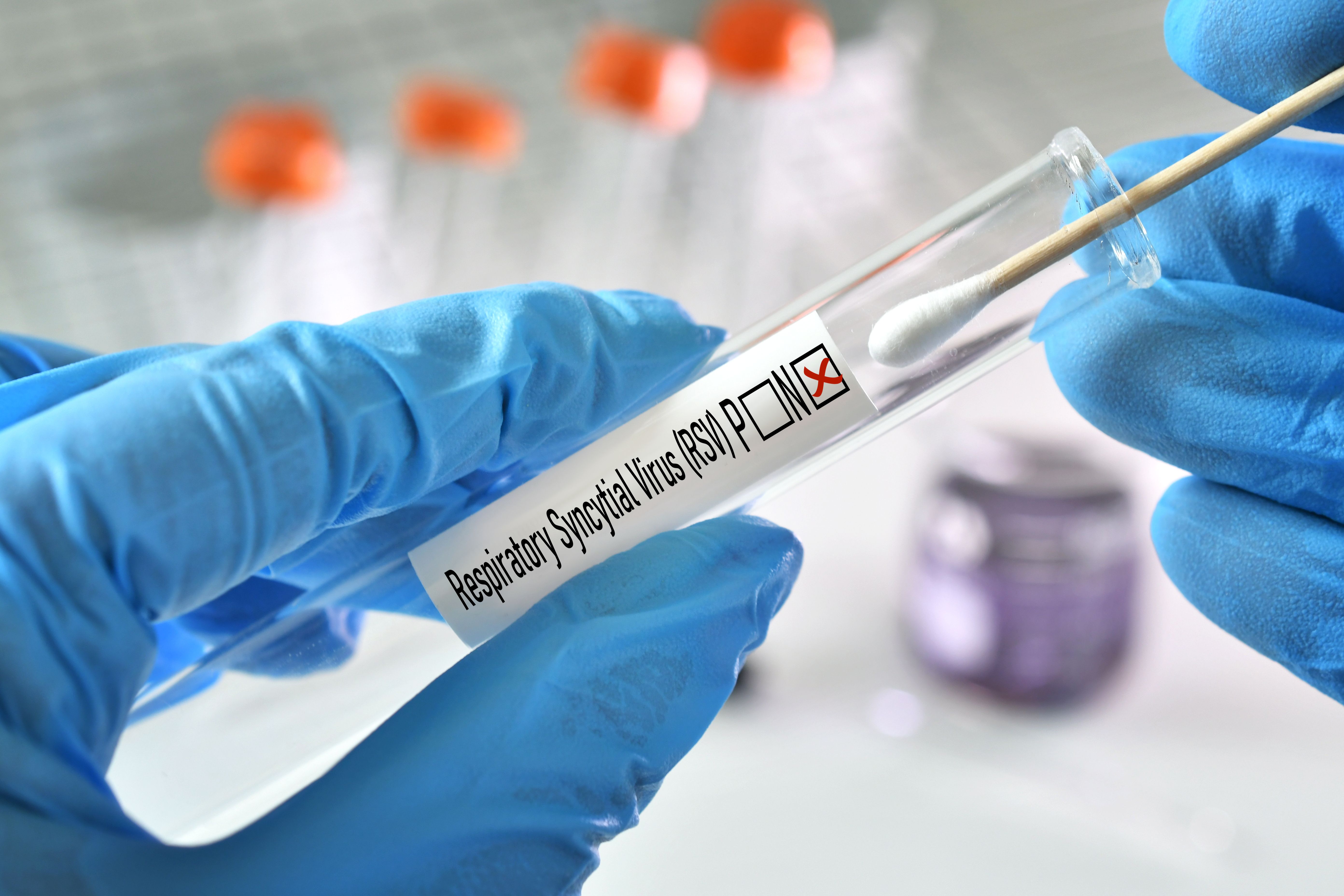- Center on Health Equity & Access
- Clinical
- Health Care Cost
- Health Care Delivery
- Insurance
- Policy
- Technology
- Value-Based Care
RSV Vaccine Shows High Effectiveness Against Hospitalization in Older Adults
The first real-world study highlights benefits for adults aged 60 years and older who receive the respiratory syncytial virus (RSV) vaccine.
In the first respiratory syncytial virus (RSV) season following CDC recommendations for adults aged 60 years and older, a study found the RSV vaccine to be 75% effective in preventing hospitalizations due to RSV-associated illness.1

The test-negative, case-control analysis is published in JAMA Network.
“Prelicensure trials were not powered to assess efficacy against RSV-associated hospitalization, excluded immunocompromised patients, and underrepresented other groups at increased risk of severe RSV disease, including adults aged 75 years and older,” wrote the researchers of the study. “This study evaluated RSV vaccine effectiveness (VE) against RSV-associated hospitalization among adults aged 60 years and older during the first season of use.”
On June 26, 2024, the CDC’s Advisory Committee on Immunization Practices (ACIP) updated its recommendations that all adults aged 75 years and older, and adults aged 60 to 74 years who are at increased risk for severe RSV disease should receive a single dose of the RSV vaccine.2
The study included adults aged 60 years and older who were hospitalized with acute respiratory illness across 24 hospitals in 19 US states from October 1, 2023, to March 31, 2024.1 Eligible patients had undergone clinical respiratory virus testing within 10 days of illness onset.
Nasal swabs were collected from the participants and tested using reverse transcription polymerase chain reaction (RT-PCR) to detect RSV, COVID-19, and influenza viruses. Patients who tested positive for RSV only were classified as case patients, while those who tested negative for RSV, COVID-19, and influenza were classified as control patients.
Additionally, demographic and clinical data were obtained through patient interviews and reviews of electronic medical records. Information on RSV vaccination status was gathered from electronic medical records, immunization registries, and self-reports, with vaccination defined as having received the RSV vaccine at least 14 days before illness onset.
The primary outcome was hospitalization due to RSV, while vaccine effectiveness (VE) was another key endpoint, measured by comparing the odds of RSV vaccination between case patients and control patients.
Out of the total 2978 patients included in the study, 367 (12.3%) were hospitalized with RSV. Additionally, 2611 (87.7%) patients were hospitalized with acute respiratory illness but tested negative for RSV, COVID-19, and influenza.
Overall, the RSV vaccine was found to be 75% effective (95% CI, 50-87) in preventing RSV-associated hospitalizations among adults aged 60 years and older. Among adults aged 75 years and older, VE was 76% (95% CI, 40-91).
The vaccine's effectiveness remained similar when using inverse probability of vaccination weighting (79%; 95% CI, 56-90), indicating robustness in the findings despite potential confounders.
Furthermore, vaccinated patients were more likely to be older (median age of 75 years vs. 72 years for unvaccinated), predominantly White (82.6% vs. 60.7%), and immunocompromised (31.7% vs. 23.4%). They also had a higher frequency of outpatient visits in the past year and lived in communities with lower Social Vulnerability Index (SVI) scores.
However, the researchers noted some limitations to the study. First, study noted disparities in RSV vaccine uptake, with a relatively low rate of vaccination during the first season of use. Second, the study assessed vaccine effectiveness during the first season of use, so the long-term effectiveness and duration of protection were not evaluated. Third, The study relied on testing within 10 days of illness onset, and any variation in testing practices or timing could have impacted the accuracy of RSV detection and classification.
Despite these limitations, the researchers believe the study shows the RSV vaccine provides significant protection against hospitalization for older adults.
“Evaluation of RSV VE in future seasons is important to confirm these findings and further examine VE among subgroups and by time since vaccination,” wrote the researchers.
References
1. Surie D, Self WH, Zhu Y, et al. RSV vaccine effectiveness against hospitalization among US adults 60 years and older. JAMA. Published online September 4, 2024. doi:10.1001/jama.2024.15775
2. Steinzor P. Updated ACIP guidelines: RSV vaccine for adult aged 60 years and older. AJMC. Published August 7, 2024. Accessed September 3, 2024. https://www.ajmc.com/view/updated-acip-guidelines-rsv-vaccine-for-adults-aged-60-years-and-older
The Breakdown: Breast Cancer Research Awareness Day
August 19th 2025Breast cancer is the second most common cancer among women and the second leading cause of cancer-related deaths among women in the US. In light of Breast Cancer Research Awareness Day, The American Journal of Managed Care® breaks down the most recent advancements in breast cancer prevention, screening, and therapies.
Listen
Politics vs Science: The Future of US Public Health
February 4th 2025On this episode of Managed Care Cast, we speak with Perry N. Halkitis, PhD, MS, MPH, dean of the Rutgers School of Public Health, on the public health implications of the US withdrawal from the World Health Organization and the role of public health leaders in advocating for science and health.
Listen
